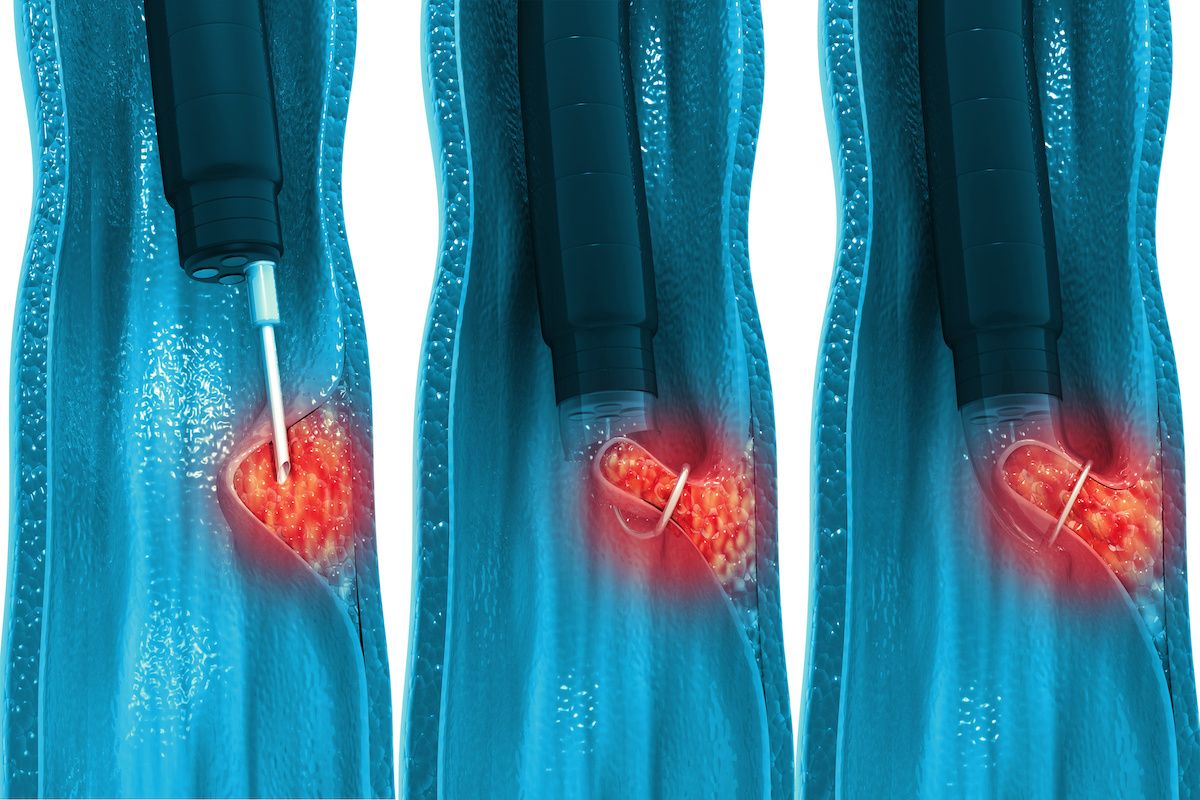Roswell Park offers several options for removal of large or difficult colon and rectal polyps — without surgery.
The rates for colorectal cancer have decreased dramatically ever since colonoscopy became the gold standard for colorectal cancer screening. Colonoscopy not only detects early signs of cancer — in the form of small growths called polyps — but the procedure also can remove these polyps at the same time, preventing colorectal cancer from ever developing.
However, some polyps found during screening colonoscopies cannot safely be removed during the procedure. These so-called complex polyps are considered difficult, because they are either too large, too flat, or located in an area that makes them unsuitable for conventional removal.
For these patients, Roswell Park Comprehensive Cancer Center has created a new program — Complex Polypectomy Program — that allows their highly trained gastroenterologists and colorectal surgeons, with the aid of advanced devices and technologies, to deliver non-surgical, endoscopic treatment of these complex polyps. “This can save patients from radical surgery and a long recovery,” says gastroenterologist Anoop Prabhu, MD, formerly an Associate Professor of Oncology at Roswell Park.
What is a complex polyp?
The term complex polyp refers to a colon or rectal polyp that can be more challenging to remove than most polyps typically encountered on colonoscopy. Features of a complex polyp include:
- Large size (greater than 2 centimeters)
- Difficult-to-reach location
- Very flat shape
“Complexity of a polyp can be in the eye of the beholder, but based on objective size alone, on average around 1% to 5% of polyps that are found are greater than 2 centimeters in dimension,” Dr. Prabhu says. In total, up to 15% of polyps are considered difficult, according to a 2019 analysis.
By definition, all polyps are considered precancerous, or adenomas. “In that sense, although they are benign or noncancerous at the time of identification, they run the risk of turning into cancer down the road,” he says.
Treatment options for complex polyps
“We offer the full complement of interventions used to manage complex polyps,” Dr. Prabhu says. Some are nonsurgical approaches: endoscopic mucosal resection, endoscopic submucosal dissection or endoscopic full thickness resection. Sometimes surgical approaches, including robotic and/or transanal surgery, are indicated.
Generally, polyps in the innermost mucosa layer of the colon wall are treated with endoscopic mucosal resection. Polyps that have grown deeper, and into the submucosa layer, are treated with endoscopic submucosal dissection.
For the most part, these procedures will be quite similar to the standard colonoscopy. “Cleaning the colon well with prep is even more important to ensure the removal goes smoothly, so the prep may be slightly more involved,” he says. “The procedure itself often will take longer than the standard colonoscopy and may require stronger anesthesia.”
Much like the initial colonoscopy that found the polyp, the colonoscopy procedure for mucosal and submucosal polyps first finds and defines the polyp. Once the polyp is deemed appropriate for removal, a cushion of fluid is injected underneath the polyp to “lift” it off of the wall, followed by removal of the polyp by use of a snare, often with cautery. “If the procedure goes well and the polyp is removed, we typically perform a repeat colonoscopy in three to six months to reassess and confirm there is no residual tissue or re-growth,” he says.
A procedure called endoscopic full thickness resection is performed for polyps located further in the wall of the colon or rectum. It involves forceps that pull the polyp up from the wall, then cutting it off with a special clip that remains in place to close the wound.
All of these complex colonoscopies are performed through the anus. The majority of patients are sent home the same day, with minor limitations on activity for the rest of the day of the procedure but return to normal activity and diet the day after.
Know Your Risk
Roswell Park recommends that everyone at average risk begin regular colorectal cancer screening at age 45 — earlier if you have certain risk factors or family history.
What if the polyp might be cancer?
Some polyps with superficial and early cancers can still be eligible for endoscopic removal, but others may need a surgical approach. “The decision on which cancers are best suited for this are handled on a case-by-case basis and often require a multidisciplinary approach with our team, including surgeons, medical oncologists, pathologists and gastroenterologists,” Dr. Prabhu says.
This is why it is important for patients to seek care at a comprehensive cancer center like Roswell Park, he stresses. “Care coordination and experience are vital in the treatment of complex colon polyps, and both are extremely strong here at Roswell Park. In many cases, patients who would have otherwise been referred for surgery are able to spare themselves surgery and the associated risks and complications,” he says. “At Roswell Park, highly skilled endoscopists who remove large polyps on a regular basis are more adept at removing polyps that otherwise might need surgery.
“As a patient, I would want to know that all options have been considered, particularly ones that can avoid surgery and the associated risks. It’s possible that an attempted endoscopic removal at Roswell could not be feasible, but as a patient I would feel more at peace with the idea that surgery was the only solution if I knew that someone who removes complex polyps regularly also agrees with that assessment.”



